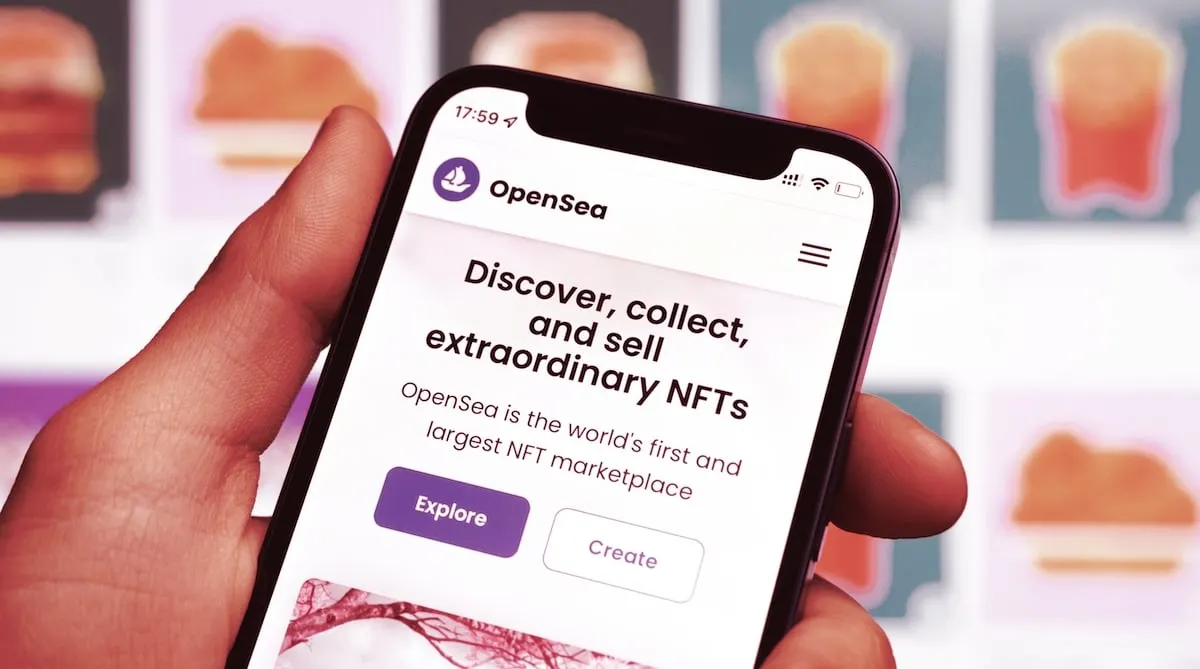In the face of rising competition from upstart rival Blur, leading NFT marketplace OpenSea announced today that it will temporarily eliminate its 2.5% fee on sales, as well as cut down creator royalty protections as it attempts to weather a rapidly changing market.
Along with axing its own marketplace fee on trades for a “limited time,” effectively cutting off its primary source of revenue, OpenSea tweeted that it will only enforce a 0.5% mandatory creator royalty fee on NFT trades for projects that don’t have an on-chain enforcement method, although sellers can choose to pay a larger percentage. A creator royalty is typically a 5% to 10% cut of the sale price, paid out to the NFT creator. It's how NFT projects generate ongoing revenue following the initial sale of tokens.
OpenSea’s move comes following a big week for Blur, the upstart marketplace that launched last October. Blur airdropped its BLUR token to more than 100,000 NFT traders on Tuesday, and then Wednesday advised NFT project creators to block OpenSea trades. Blur does not charge a marketplace fee for traders.
Late last year, OpenSea made a number of changes to its creator royalties approach, and ultimately said that it would honor full royalty settings on all NFT projects created before a certain date in January 2023, but only enforce royalties going forward for new projects that utilized an on-chain enforcement tool.
OpenSea’s own enforcement tool blocks marketplaces that do not fully enforce creator royalty settings—including Blur. But Blur was apparently able to find a workaround to that blocklist in January, only helping it pull more and more users away in recent weeks. On-chain data points to a rapidly rising user count for Blur, and just the opposite for OpenSea.
Along with today’s changes, OpenSea said that its operator filter tool will no longer block marketplaces that take the same kind of approach that it just unveiled.
“There’s been a massive shift in the NFT ecosystem,” OpenSea tweeted. “In October, we started to see meaningful volume and users move to NFT marketplaces that don’t fully enforce creator earnings. Today, that shift has accelerated dramatically despite our best efforts.”
On Wednesday, Blur recommended that NFT creators block secondary trades on OpenSea, saying that it would only enforce full royalty settings for projects that banned OpenSea. Blur framed the move as pushback to OpenSea’s own decisions late last year, whereas OpenSea has said it sought to protect creators as a result of actions by Blur and other rival platforms.
“We thought we could catalyze widespread enforcement of creator earnings, and we hoped others might come up with more resilient solutions—this hasn’t happened,” OpenSea tweeted today. “Recent events—including Blur’s decision to roll back creator earnings (even on filtered collections) and the false choice they’re forcing creators to make between liquidity on Blur or OpenSea—prove that our attempts are not working.”
OpenSea pointed to on-chain data showing that about 80% of NFT trading volume today is made without some type of creator royalty included. The marketplace suggested that it’s trying to figure out a path forward that benefits NFT creators and traders alike.
“This is the start of a new era for OpenSea,” it wrote. “We’re excited to test this model and find the right balance of incentives and motivations for all ecosystem participants—creators, collectors, and power buyers and sellers.”
Stay on top of crypto news, get daily updates in your inbox.





